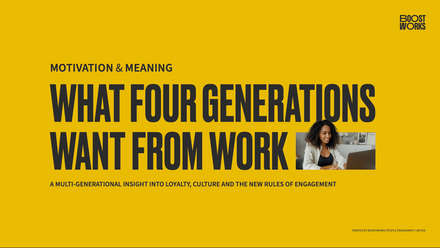The benefits of building a mindful company

I had a talk with ‘Museum of Happiness’ Co-Founder Shamash Alidina over the weekend. He organised a mindfulness experience to introduce his new book, Mindfulness for Challenging Times that featured the perspectives of 20 different teachers on the concept.
This talk brought me to the question: Is there such thing as a mindful company?
To explore what this means, we have to first define mindfulness. And to do this I’d like to debunk three misconceptions I often hear about mindfulness:
- Mindfulness is the same as meditation. Meditation is an activity that we do, whether we do that for 10 minutes or for half an hour. Mindfulness, however, is a state of being. It’s not about doing anything, it’s about a way we see the world around us.
- The aim of mindfulness is to reach an empty-minded state, free of thoughts. This will not happen. We will always have thoughts. Mindfulness is becoming aware of your thoughts and observing them, as opposed to becoming attached to them. Jon Kabat-Zinn, who is widely accredited with bringing mindfulness from the East to the West in the 1970s, defined mindfulness as “the awareness that arises from paying attention on purpose in the present moment and observing it non-judgmentally”.
- Mindfulness is complicated. There is a misconception that one has to go on a retreat or complete a workshop to practice mindfulness. Mindfulness is in fact very simple as it’s about becoming aware. As Kabat-Zinn says, “by focusing on the breath, that it is to cultivate attention on the body and mind as it is, moment to moment”.
YuLife’s Chief Wellbeing Officer Doctor Chatterjee further explains on his podcast that so few people keep up the practice of mindfulness because they think they have to reach a state free from thought and if they don’t, they stop. By debunking these misconceptions, I hope more people adopt a mindful approach to life.
The benefits of mindfulness
Now we’ve touched on the misconceptions, I’d also like to discuss three benefits and positives that can be taken from mindfulness:
- Connection – we feel more connected to the world around us externally and internally, allowing us to feel more integrated and be more at one.
- Curiosity – when we are in the present moment, we are much more open to what’s around us at the moment, rather than attempting to control. We become open and curious to what life brings; there is a freedom in that curiosity.
- Compassion – ultimately when we become aware of ourselves and exist in the moment, that leads to compassionate experience about the world, life and for other human beings because we realise we are all on the same journey.
Meditation teacher Ajahn Brahm discusses the concept of ‘kindfulness’, saying that “by looking after oneself, one looks after others – and by looking after others, one looks after oneself”. This is what happens when someone takes compassion with mindfulness.
How mindfulness can mean success for businesses
So, we’ve discussed both the misconceptions and benefits of being mindful, but can one build a mindful company? Or is this something we can only do for individuals? My answer is a resounding yes. We at YuLife, and plenty of other companies in the market, are operating with mindfulness at the core. Let’s apply these positives to how a company is run:
- A connected company thrives. As a company, if we can feel the sense of connection between departments, each other, our customers and the world as a whole around us, we will naturally become more successful and we will thrive.
- Curiosity leads to innovation. Companies who are free to be curious, open, inventive, experiment and try things to address what’s happening in the moment will be much better at adapting to the needs of their market in the long run. We’re seeing serious innovation at the moment and it makes me proud; people are tapping into their curiosity and collaborating.
- Compassion helps us to make a difference. If a company can connect to a bigger mission than simply making money, feel compassion and connect to a bigger purpose, they will succeed and make a positive mark on the world. Compassion isn’t sympathy or empathy, it’s realising we are on a journey to make a difference together.
These are the three elements of progressive companies in the 21st century. Companies who are successful demonstrate these characteristics.
Mental Health Awareness is important for us to develop. Be kind this year. Take a moment to be kind to your family and to be kind to yourselves. It all starts with ourselves and that way we treat ourselves is often the way we treat others.
The author is YuLife CEO Sammy Rubin.
This article is provided by YuLife.
Supplied by REBA Associate Member, YuLife
YuLife is the first digital life insurance provider on a mission to inspire life.







